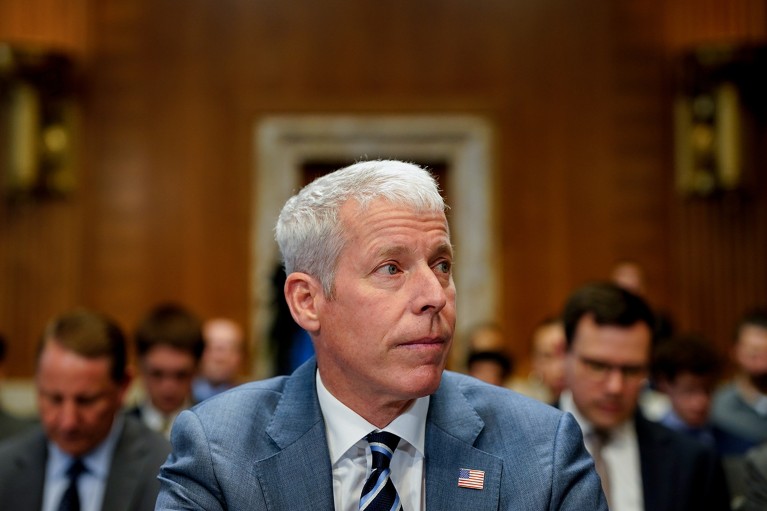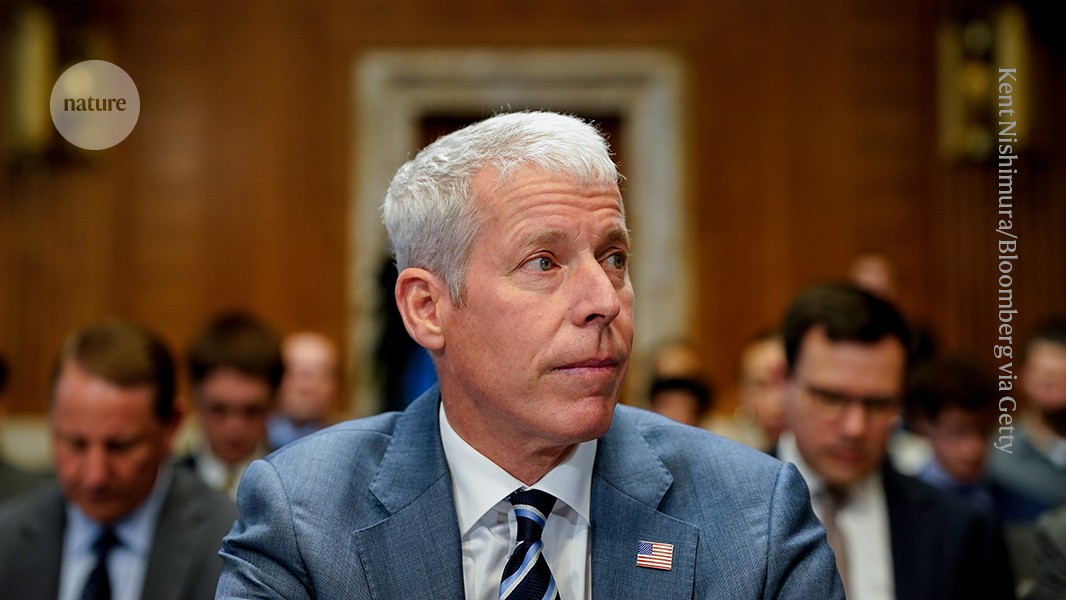
US energy secretary Chris Wright recruited the report’s five authors, who question the scientific consensus on climate change.Credit: Kent Nishimura/Bloomberg via Getty
Dozens of scientists are scrambling to respond to a report released last week by the US Department of Energy (DoE), which concluded that global warming is “less damaging economically than commonly believed”. The researchers say that the report, written by a small group of scholars who question the scientific consensus on climate change, misrepresents decades of climate science in a bid to repeal a 2009 government ruling that greenhouse gases endanger public welfare. They are now trying to coordinate a unified response, knowing that their arguments could influence a legal battle that is likely to go to the US Supreme Court.
“This little report is basically designed to suppress science, not to enhance it or encourage it,” says Joellen Russell, an oceanographer at the University of Arizona. “It’s awful.”
Trump gutted two landmark environmental reports — can researchers save them?
“I’m gobsmacked,” says Benjamin Santer, a climate scientist at the University of East Anglia in Norwich, UK, who spent three decades working at the DoE’s Lawrence Livermore National Laboratory in California. “It’s a revision of science and a revision of history. We have to respond.”
Some climate researchers are now writing short rebuttals to the scientific arguments made in the DoE report. “The alternative is to do nothing,” says Andrew Dessler, an atmospheric scientist at Texas A&M University in College Station, who is helping to coordinate one effort. “I just don’t think I can do that.”
The DoE declined to address criticisms of the science laid out in the report, but a spokesperson said that the document’s five authors were recruited by the US energy secretary Chris Wright — a former oil and gas executive — and that they “represent diverse viewpoints and political backgrounds and are all well-respected and highly credentialled individuals”. The report, the spokesperson adds, was reviewed internally at the agency, and the DoE is now opening it up to “wider peer review from the scientific community and the general public”, with the comment period ending on 2 September.
The authors — John Christy, an atmospheric scientist at the University of Alabama in Huntsville; Judith Curry, a climatologist at the Georgia Institute of Technology in Atlanta; Steven Koonin, a physicist and senior fellow at Stanford University’s Hoover Institution in California; Ross McKitrick, an economist at the University of Guelph in Ontario, Canada; and Roy Spencer, a meteorologist at the University of Alabama — provided a written response to Nature. They say they are “committed to a transparent and fact-based dialogue on climate science and know from long experience that scientific criticism and rebuttal are essential to that process. But productive scientific disagreement must be centered on specifics, not generalities”.
Scientists should submit their comments directly to the DoE “rather than filtering their concerns through the media”, they wrote, saying they will respond publicly “to all serious scientific comments” and modify the report as warranted.
A contested report
In 2007, the US Supreme Court issued a ruling that greenhouse gases qualify as air pollutants, and ordered the US Environmental Protection Agency (EPA) to determine whether emissions endanger the public — and should therefore be regulated. Under then-president Barack Obama, a Democrat who took office in 2009, the EPA issued the ‘endangerment finding’, which confirmed that greenhouse gases such as carbon dioxide threaten public health and welfare. The Obama administration then used this ruling as a basis to curb emissions from cars, power plants and more.
Trump’s call for ‘gold standard science’ has prompted an outcry: here’s why
The EPA — now under President Donald Trump, a Republican who has called climate change a hoax — is today taking the opposite stance, seeking to repeal the finding. Anticipating this move, Scott Saleska, an ecologist at the University of Arizona in Tucson, and a team of scientists published a commentary in the journal AGU Advances in June1, examining the role that science had in the 2007 Supreme Court decision and in the EPA’s subsequent endangerment finding. The science was compelling enough in 2009 for the EPA to determine that greenhouse gases “may reasonably be anticipated to endanger public health or welfare”, the authors wrote, and the evidence is “significantly stronger today than it was 16 years ago”.




